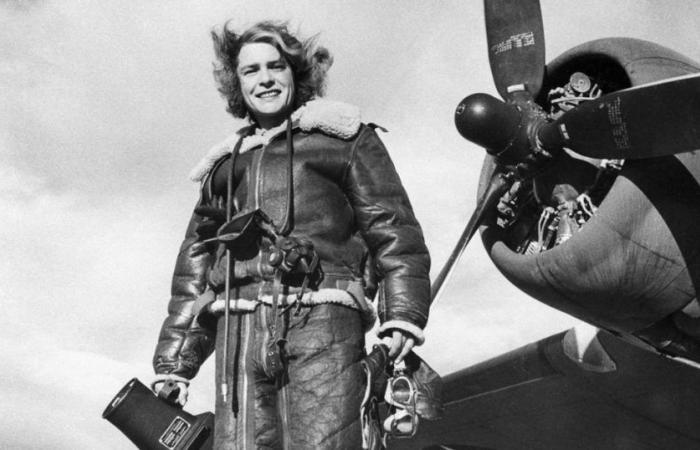
In theaters Wednesday October 9, Lee Miller by Ellen Kurras adapts the life of the American photographer played by Kate Winslet for the screen. The opportunity to remember another great figure in photojournalism, also present with Miller during the liberation of Nazi Germany.
This article comes from Figaro Magazine
It’s a shame to have to choose between two giants. We can very well like the Rolling Stones and the Beatles. Admiring and respecting the work of Lee Miller – whose incredible life is brought to the screen this week thanks to the talent of Kate Winslet – should therefore not prevent us from returning to that of Margaret Bourke-White (MBW). For narrative reasons, this other American who, like Miller, covered the Second World War, does not appear in Ellen Kurras’ film. With a few others (George Rodger, Henryk Ross and Mendel Grossmann), they nevertheless documented the discovery of concentration and extermination camps.
Irrefutable proof of the Nazi death machine which, even in our time when the internet and social networks, bloated with trivialized violence, convey the horrors of the world daily, are difficult to watch. Margaret Bourke-White did not take a bath in Hitler’s bathtub as Lee Miller did – a moment immortalized by David Scherman on April 30, 1945, just after journalists discovered the Nazi camp. Dachau. His life could still fill several novels.
This article is reserved for subscribers. You have 81% left to discover.
Do you want to read more?
Unlock all items immediately. No commitment.
Already subscribed? Log in





